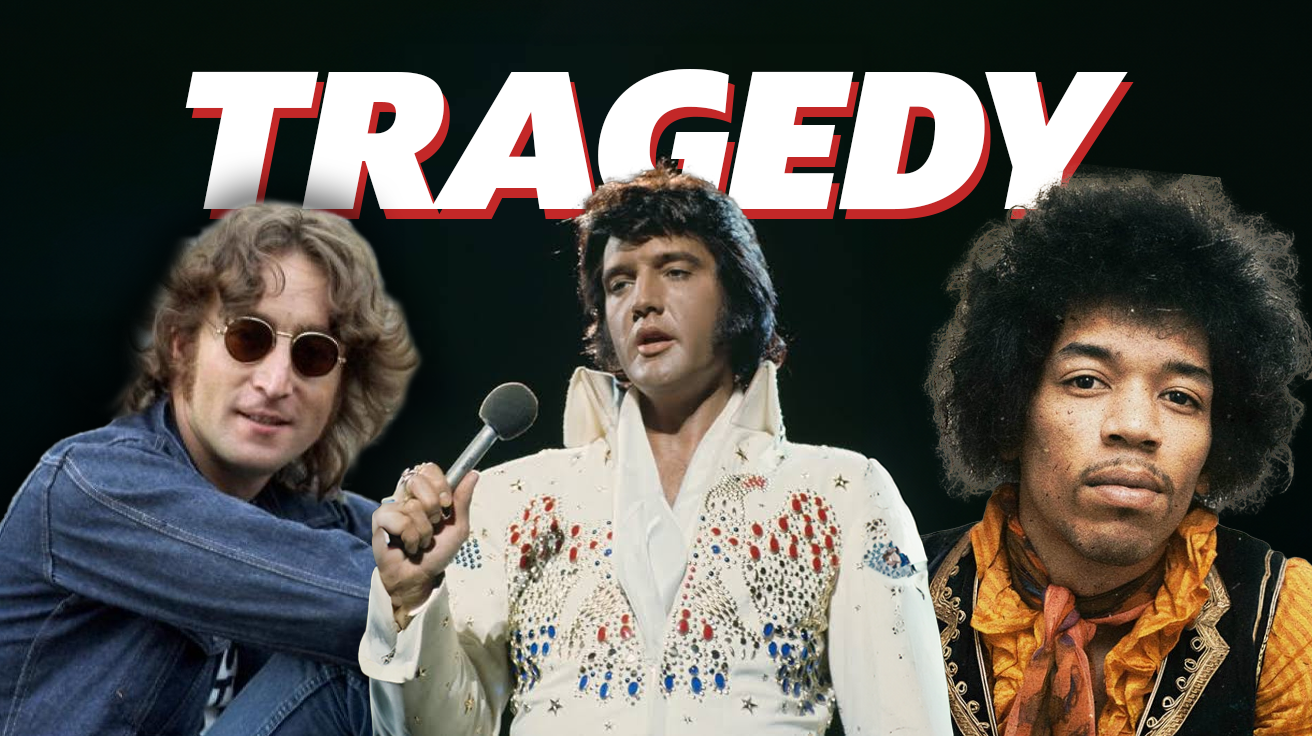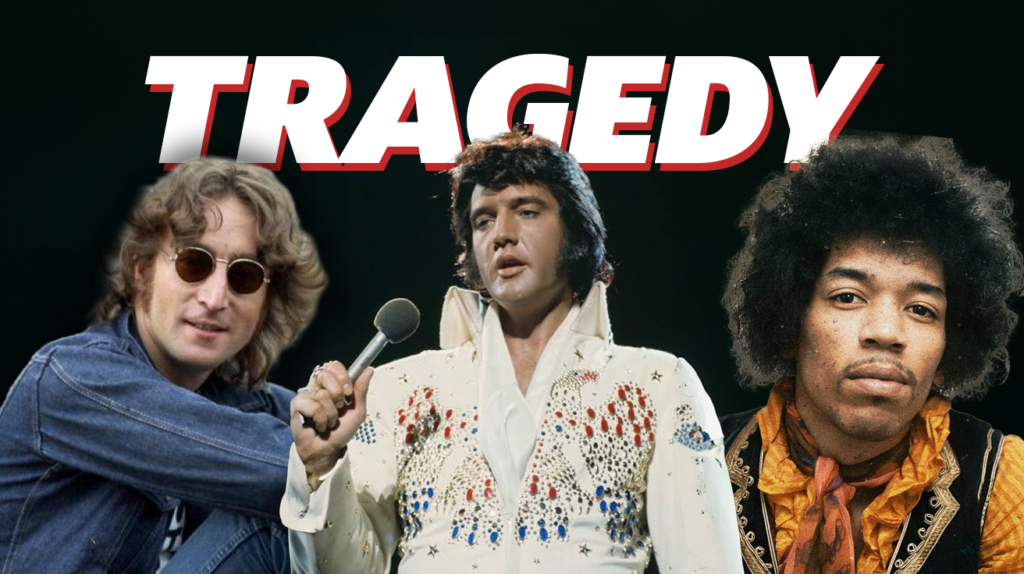
Fame kills. Behind every gold record of the 1970s lurks a potential obituary. While millions sang along to radio hits, the artists who created them often screamed silently for help. The music industry didn’t just make stars – it destroyed lives. Drug overdoses, suicide, plane crashes, and murder ended careers that fans assumed were charmed. “Fame is a prison,” Janis Joplin confessed shortly before her death. The truth? For many icons, that prison became a death sentence. These aren’t just stories of excess – they’re warnings about an industry that profits from burnout and breakdown. The brightest spotlight often casts the darkest shadow.
16. Elvis Presley: The King’s Downfall
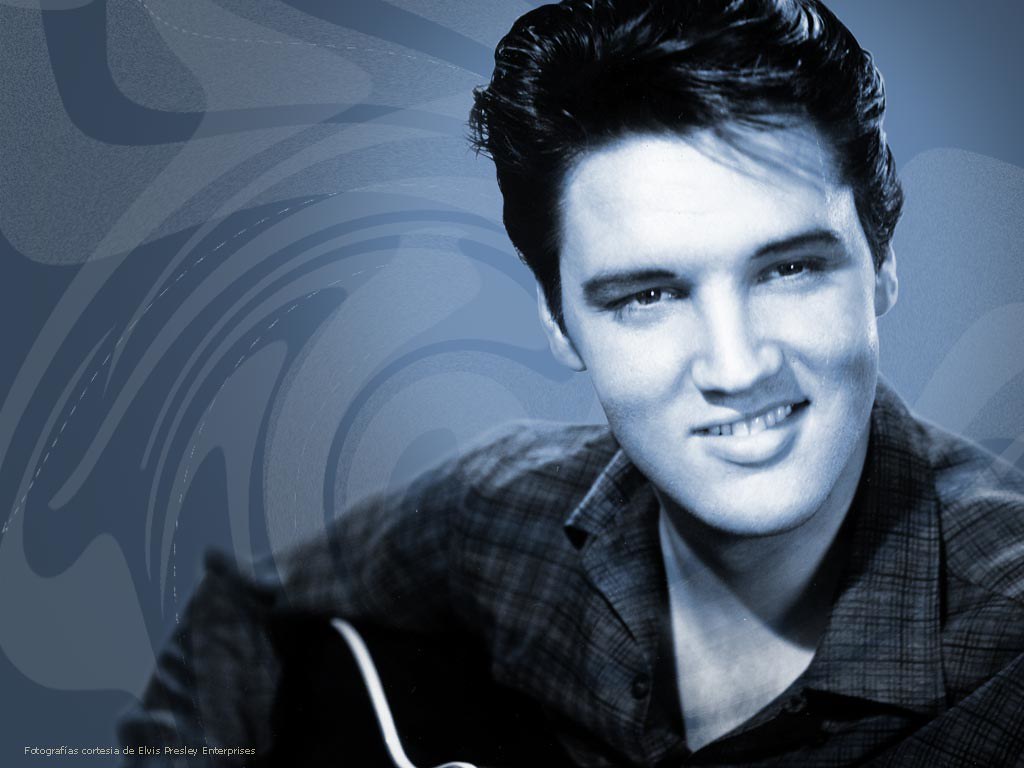
Elvis conquered the music world with hits like “Hound Dog” and “Jailhouse Rock,” yet fame ultimately crushed him. His revolutionary blend of musical genres still sounds impressive today, especially when played through a high-quality soundbar designed for music. His doctor once counted that Elvis took 14 different medications daily. Colonel Tom Parker drove the King relentlessly while Elvis increasingly turned to prescription drugs for escape. Though he pioneered a revolutionary blend of musical genres with his charismatic stage presence, obesity and medication abuse destroyed his health. “I’m sick and tired of being Elvis Presley,” he confided to a friend months before his death. His personal life unraveled alongside his deteriorating health. Heart failure killed Elvis at just 42 years old in 1977, stunning millions of fans. As one of the best-selling artists in history, his premature death delivered one of the first stark warnings about fame’s toxic effects.
15. Karen Carpenter: The Silent Killer
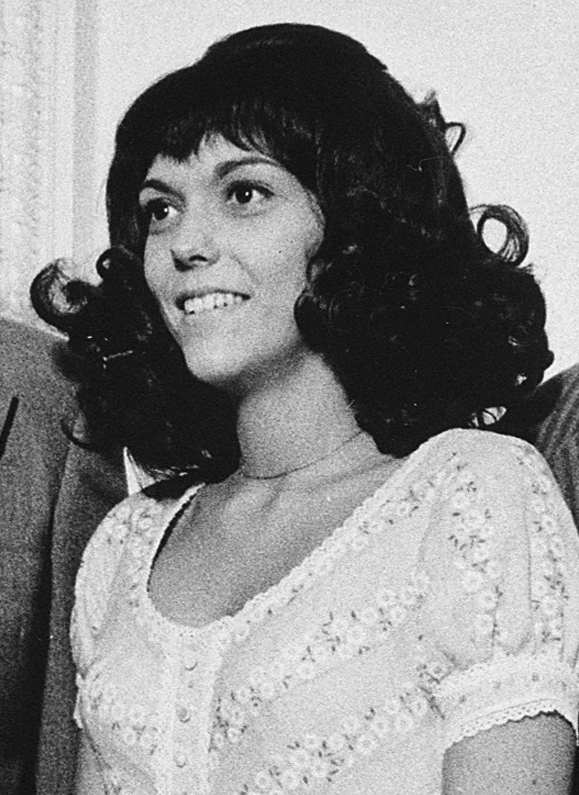
“She had the voice of an angel,” Herb Alpert remarked after Karen Carpenter’s death. While her smooth, distinctive vocals defined The Carpenters’ soft rock hits like “Close to You,” record executives obsessed over her appearance. Their constant pressure about her weight triggered a fatal obsession. Karen secretly abused thyroid medication and laxatives while anorexia nervosa ravaged her body. She dropped to just 80 pounds at her lowest point. Her heart, weakened by years of malnutrition, failed at 32 years old. “I’m just trying to control something,” she had told her therapist shortly before her death. The music industry’s impossible standards killed one of its most gifted vocalists even as fans celebrated her talent.
14. Janis Joplin: A Lost Soul’s Overdose

Janis Joplin confronted a reporter once with stunning honesty: “On stage, I make love to 25,000 people; then I go home alone.” Her powerful, bluesy voice pioneered blues-rock while masking profound inner torment. Alcohol and drugs offered temporary refuge as she navigated both fame and harsh judgment as a bisexual woman in the 1960s counterculture. Though critics praised her explosive stage presence, personal demons pursued her relentlessly. She tried to quit heroin multiple times before a final overdose killed her at 27 years old in 1970. Her posthumous album “Pearl” topped charts for 9 weeks, cementing her legacy as she joined the “27 Club” of brilliant artists who died too young. The night before her death, she told a friend, “I just want to feel good for a little while.”
13. Jim Morrison: The Lizard King’s Mystery
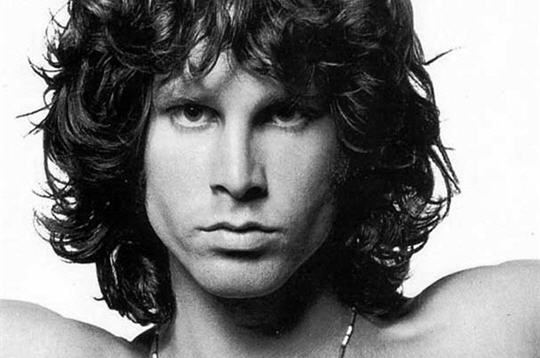
“I’m interested in anything about revolt, disorder, chaos,” Jim Morrison once declared, living those words until his final day. The Doors frontman shattered boundaries through poetic lyrics and an electrifying stage presence. His arrest in Miami for allegedly exposing himself onstage sparked nationwide venue cancellations. While “Light My Fire” and other hits captivated millions, Morrison’s alcohol consumption reached a bottle of whiskey daily. Drugs and alcohol initially fueled his creativity but eventually devoured him. He died in a Paris bathtub under mysterious circumstances at 27 years old in 1971. No autopsy was performed. Bandmate Ray Manzarek later said, “Jim was really tired. He went to Paris to rest. And he died.” Morrison’s explosive four-year career transformed rock music while cementing him as a permanent cultural icon.
12. John Lennon: A Tragic End to a New Beginning
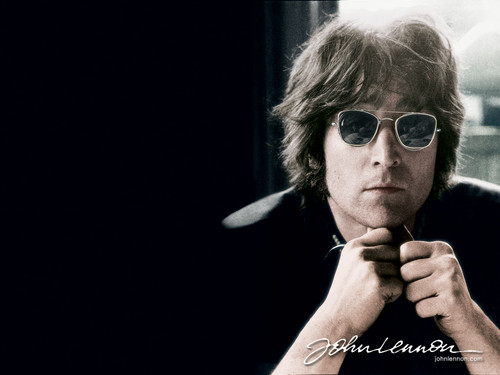
“The dream is over,” John Lennon sang in 1970, but by 1980, a new dream had begun. After finding peace during five years of domestic life away from music, Lennon returned triumphantly with “Double Fantasy.” His famous statement that the Beatles were “more popular than Jesus” had once triggered record burnings across America. Though older and wiser at 40, his outspoken activism still created enemies. “We’re trying to sell peace,” he explained shortly before his death. On December 8, 1980, Mark David Chapman shot Lennon four times outside his New York apartment. Just hours earlier, Lennon had autographed an album for his killer. The senseless murder silenced music’s most prominent peace advocate just as he embraced a promising new chapter.
11. Freddie Prinze: A Comedian’s Demons

“Looking good!” became Freddie Prinze’s catchphrase on “Chico and the Man,” but privately he battled demons invisible to his adoring audience. Depression stalked him offscreen even as he made America laugh weekly. After rocketing to fame at just 19 years old, Prinze struggled with the crushing pressure of his $25,000-per-week salary and sudden celebrity. “I must end it. There’s no hope left,” he wrote in his suicide note. Cocaine use worsened his already fragile mental state. At 22 years old, Prinze shot himself in front of his business manager. His tragic death exposed how comedy often masks profound suffering and demonstrated fame’s potential to overwhelm young talent without proper support systems.
10. David Cassidy: The Price of Teen Idol Fame
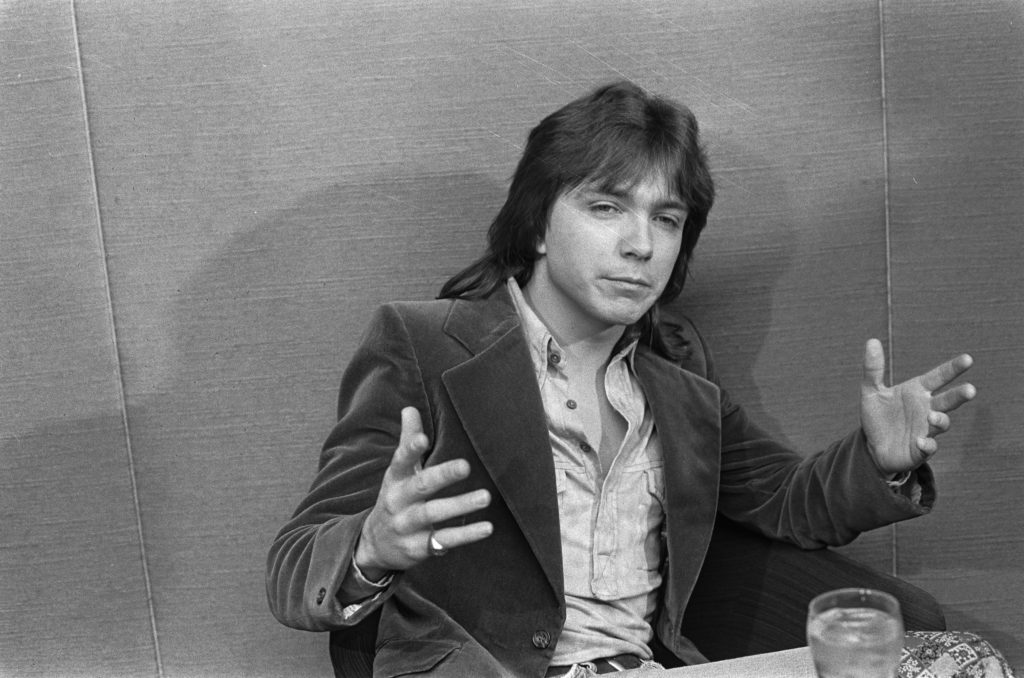
“I got caught up in the illusion,” David Cassidy reflected later in life. His face dominated teen magazines during “The Partridge Family” years while screaming fans tore at his clothes at concerts. At the peak of “Cassidymania,” he received 25,000 fan letters weekly. The young star soon resented his bubblegum image, desperately wanting respect as a serious musician. “I’m not a fan of David Cassidy. I’m David Cassidy,” he once snapped at a reporter. Severe alcoholism followed as Cassidy struggled to escape his teen idol typecasting. Multiple DUI arrests marked his later years. In a cruel twist, dementia – the same disease that had claimed his mother – clouded his final days before liver failure killed him at 67 years old. His last words reportedly were: “So much wasted time.”
9. Jimi Hendrix: A Guitar Virtuoso’s Chaotic End
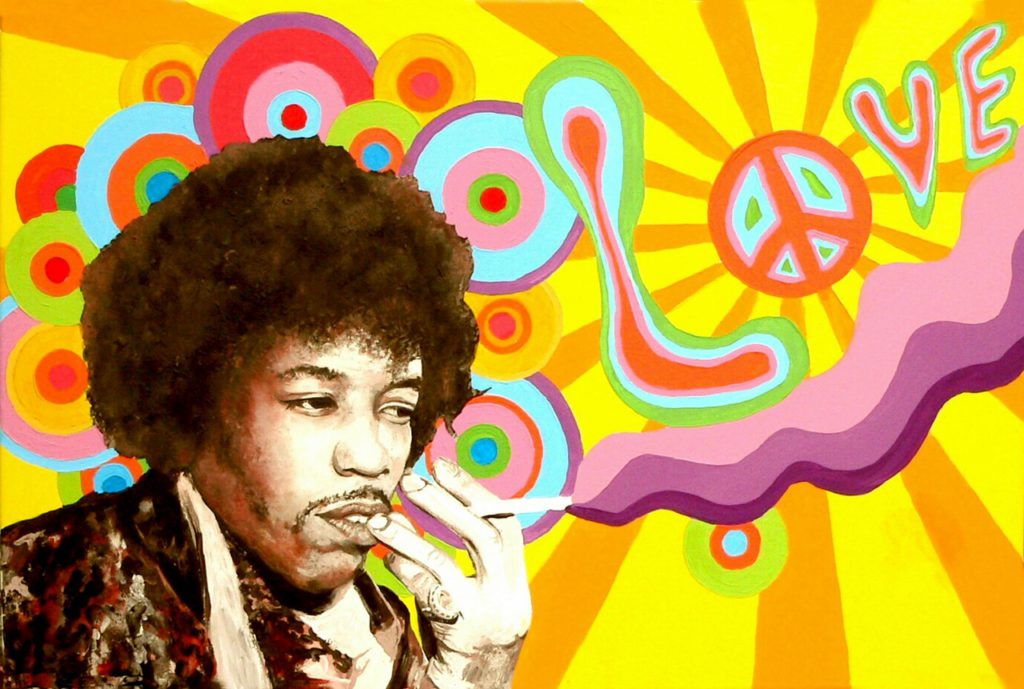
“When I die, just keep playing the records,” Jimi Hendrix once said. His fingers revolutionized guitar playing with techniques that guitarists still study five decades later. Pete Townshend called watching Hendrix play “like watching Jesus Christ play.” Though his musical genius dazzled audiences worldwide, substance abuse haunted him constantly. “I’ve been imitated so well I’ve heard people copy my mistakes,” Hendrix joked, but his biggest mistake proved fatal. After taking nine sleeping pills – 18 times the recommended dose – with wine, Hendrix choked on his vomit and died at 27 years old in 1970. His death stunned fellow musicians and cut short an innovative career just as Hendrix planned a new jazz-influenced direction. Producer Eddie Kramer later revealed, “Jimi had enough material for three double-albums ready to record.”
8. Brian Jones: The Overlooked Stone

“He formed the band. He chose the members. He named the band,” Keith Richards admitted about Brian Jones years later. Jones not only founded the Rolling Stones but played 14 different instruments on their early recordings, shaping their distinctive sound. While Jagger and Richards gained prominence as songwriters, Jones sank into obscurity. Escalating drug problems and erratic behavior led the band to fire their founder on June 8, 1969.
7. Richard Pryor: Comedy and Chaos
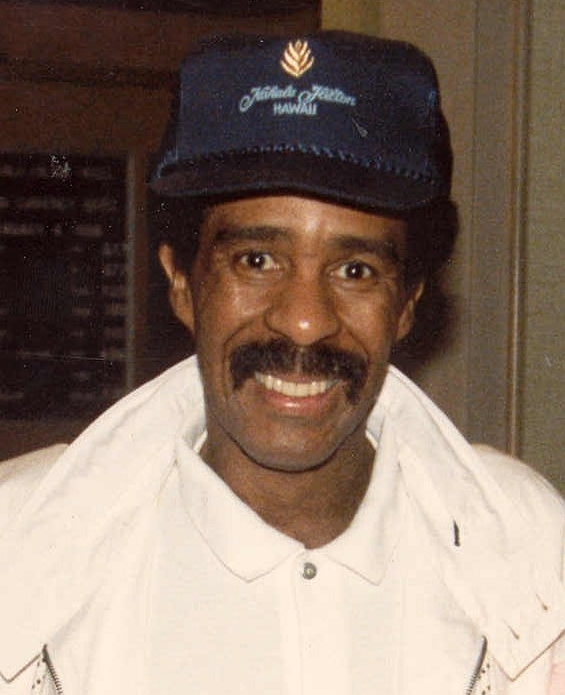
Pryor’s onstage brilliance matched the chaos of his personal life. After discovering his grandmother ran a brothel where his mother worked as a prostitute, Pryor channeled trauma into groundbreaking comedy. His cocaine addiction spiraled until June 9, 1980, when he set himself on fire while freebasing cocaine, burning over 50% of his body. “I tried to commit suicide,” Pryor later joked darkly. “Next time I’ll do it right.” He survived only to face multiple sclerosis in 1986, gradually losing mobility. The illness finally killed him via heart attack at 65 years old. Despite his struggles, Pryor transformed comedy forever with raw authenticity.
6. Otis Redding: The King of Soul’s Untimely Exit
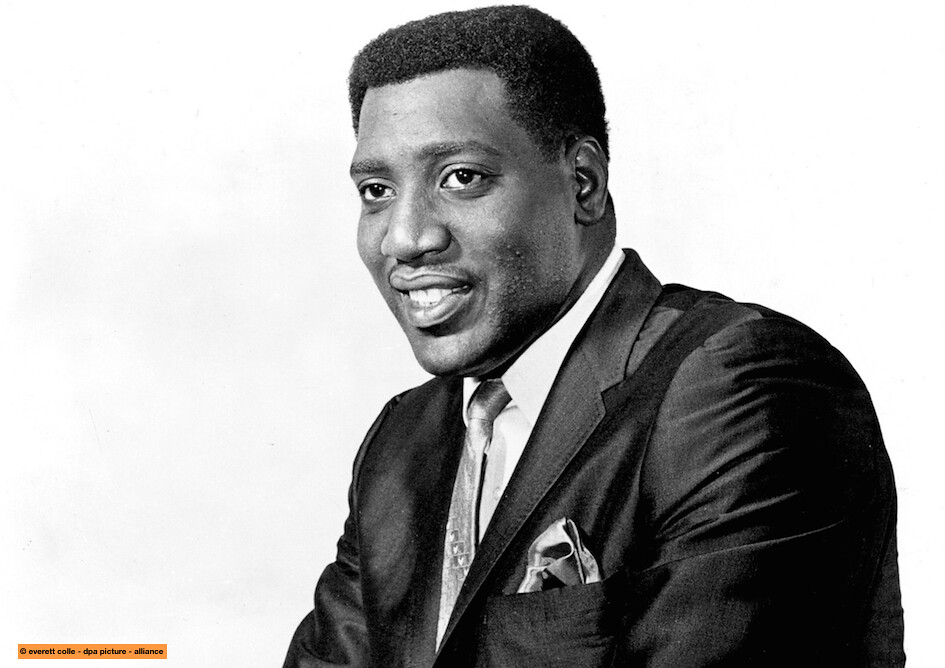
“This is my first million-seller,” Otis Redding told his wife excitedly after recording “(Sittin’ On) The Dock of the Bay.” He never lived to see it top the charts. Redding transformed soul music with a raw vocal power that Jerry Wexler called “an irresistible force of nature.” After stealing the show at the 1967 Monterey Pop Festival, his stardom surged. Just three days after recording “Dock of the Bay,” Redding boarded a small plane during stormy weather. The aircraft crashed into an icy Wisconsin lake, killing him at just 26 years old. “That plane was in the water not 10 feet deep, in freezing temperatures,” lamented Steve Cropper, his songwriting partner. “We couldn’t save him.” The posthumous hit became the first posthumous #1 single in U.S. chart history, a bittersweet testament to what might have been.
5. Jim Croce: Storytelling Cut Short
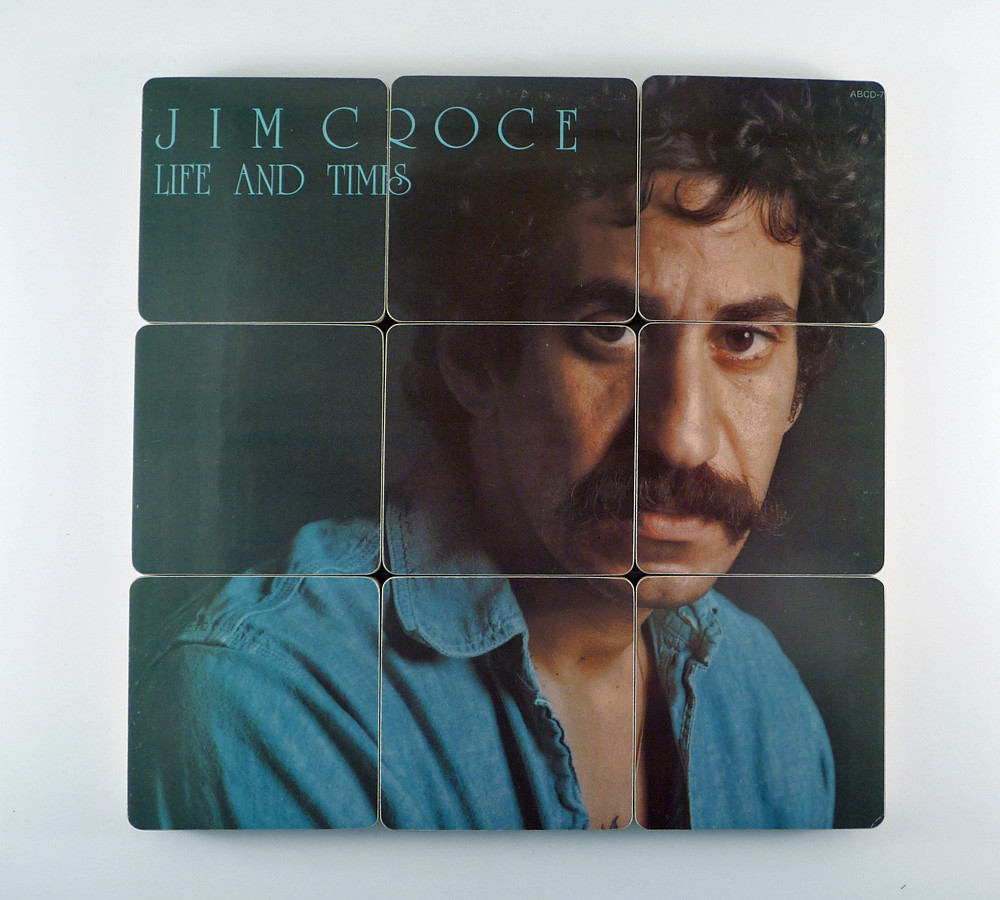
“If I ever get rich, I’m going to invest in real estate, because God isn’t making any more of it,” Jim Croce joked in his final weeks. His lyrical stories about ordinary people connected deeply with listeners through hits like “Bad Bad Leroy Brown.” After years of scraping by – teaching, driving trucks, and construction work – Croce finally achieved the success he deserved. “Time in a Bottle” captured his philosophy: “There never seems to be enough time to do the things you want to do.” How tragically prophetic. On September 20, 1973, Croce performed at Northwestern Louisiana University. Minutes after the show, his plane crashed during takeoff, killing him instantly at 30 years old. Maury Muehleisen, his guitarist, also died. A week after his death, “I Got a Name” was released – the final song he ever recorded.
4. Marvin Gaye: A Soul Icon’s Violent End

“My father won’t be happy until I’m dead,” Marvin Gaye once told his sister, a chilling premonition that eventually came true. While his smooth voice addressed social issues through masterpieces like “What’s Going On,” Gaye battled severe depression and drug addiction behind the scenes. The man who sang about sexual healing struggled with his own demons. “Miracles happen,” said Smokey Robinson of Gaye’s vocal talent. “Marvin was a miracle.” Family conflicts reached a boiling point during a violent argument on April 1, 1984 – one day before his 45th birthday. His father, a strict Pentecostal minister, shot him twice in the chest at close range, killing him instantly at 44 years old. The violent death shocked fans worldwide who never suspected the tortured family dynamic behind Motown’s smooth-voiced prophet.
3. Gram Parsons: A Pioneer’s Bizarre Finale

“We’re not trying to imitate, we’re trying to improve,” Gram Parsons declared about his revolutionary country-rock fusion. Before Americana existed as a genre, Parsons created its blueprint through work with The Byrds and Flying Burrito Brothers. Keith Richards considered him a kindred spirit. “I’ve made a stand against traditional country music,” Parsons stated proudly. Behind his innovation lurked a privileged but troubled past – his father committed suicide when he was 12, and his mother died from alcoholism when he was 18. Haunted by these losses, Parsons sank into heroin and alcohol abuse. On September 19, 1973, he overdosed in room 8 at the Joshua Tree Inn, dying at just 26 years old. Then came the bizarre coda: friends stole his body from the airport, drove it to Joshua Tree National Park, and partially cremated it, fulfilling his stated wish to be “free like the wind.”
2. Ronnie Van Zant: Southern Rock’s Tragic Flight
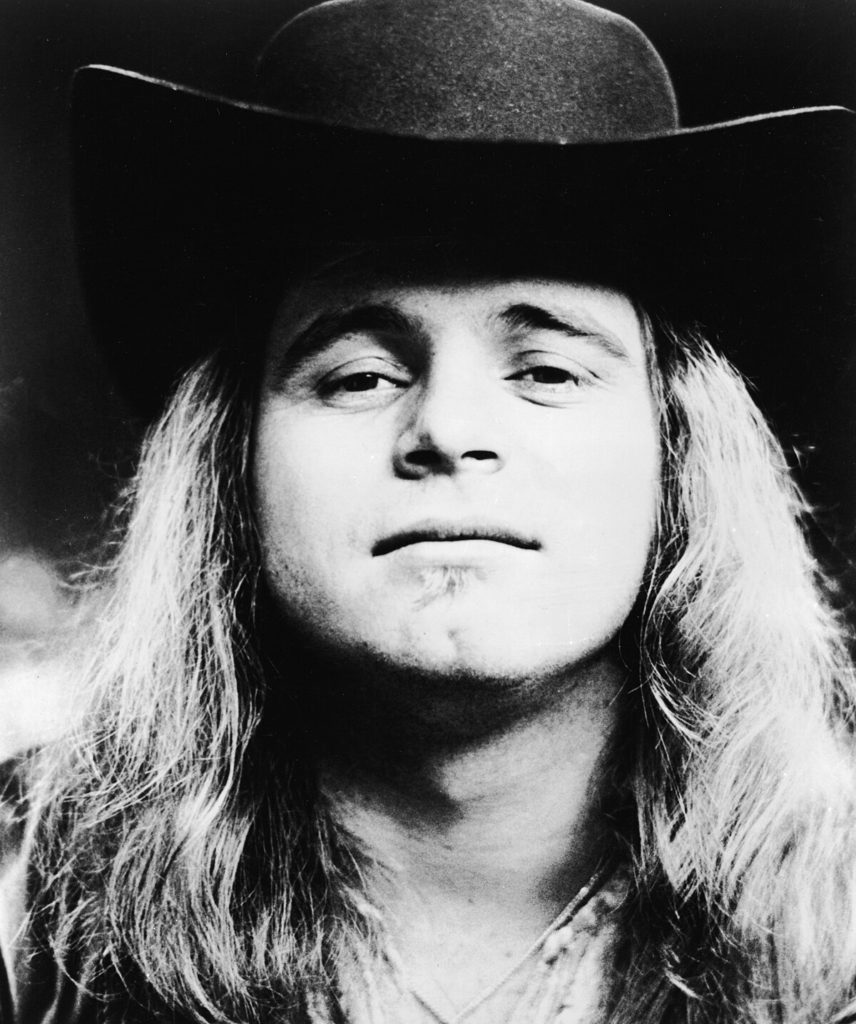
“If I leave here tomorrow, would you still remember me?” sang Lynyrd Skynyrd in “Free Bird,” their signature anthem. The question became hauntingly real when lead singer Ronnie Van Zant died just days after their fifth album release. Van Zant wrote authentic stories of working-class Southern life with rare poetry. “They call me the Florida Flash,” he once boasted of his songwriting speed. “I can write a song in five minutes.” His barefoot stage performances became legendary in Southern rock. On October 20, 1977, three days after releasing “Street Survivors,” the band’s plane ran out of fuel near Gillsburg, Mississippi. The crash killed Van Zant instantly at 29 years old, along with guitarist Steve Gaines, his sister Cassie, and three others. The album cover – showing the band surrounded by flames – was immediately withdrawn. “That plane crash knocked the heart out of the band,” said guitarist Gary Rossington, one of the survivors.
1. Andy Gibb: The Temptations of Stardom

“The hardest thing in the world is to be a shadow or a brother,” Andy Gibb once lamented, struggling with his identity as the Bee Gees’ younger brother. While his famous siblings dominated the disco era, Andy scored three consecutive #1 hits with “I Just Want to Be Your Everything,” “Love is Thicker Than Water,” and “(Our Love) Don’t Throw It All Away.” “He was the golden boy of the family,” Robin Gibb recalled. Crippling cocaine addiction consumed more than $1 million of his earnings at the height of his fame. “I got caught up in being Andy Gibb,” he confessed as his career collapsed. His battle with depression deepened after a breakup with actress Victoria Principal. After five days of severe chest pains, he died from myocarditis, an inflammation of the heart, at just 30 years old on March 10, 1988 – five days after his birthday. “The cocaine use probably weakened his heart,” a doctor later speculated, though the autopsy showed no drugs in his system.


